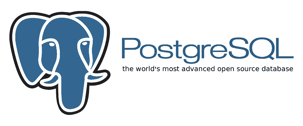Why would you want to pay for external PostgreSQL support when your internal Dev team can work through any database problems themselves? Surely, they’d know the system better than anyone outside the organisation, making them ideal for fixing issues themselves.
In reality, there’s many aspects of PostgreSQL that are vital to the ongoing performance of a database which your Dev team is unlikely to be familiar with.
When you review total costs to your business, it’s important to be honest about the proportion of your Dev team that truly understand how the internals of your database work. In the best-case scenario for many of our clients, it may be one or two people but it’s unlikely they’ll have the skills to diagnose complex problems in a mission-critical situation. Meanwhile, the other Dev team members will be sitting idle while they wait for your resident expert to fix the database.
Achieve more with less
With all of us constantly under the pump to achieve more with less time, it’s no wonder we’re all underwhelmed with our accomplishments each week. For our clients, we find it’s frequently due to time spent resolving database issues, rather than focusing on the activities that actually generate revenue.
While in-house support of your PostgreSQL database may not sound like it requires a significant investment of time and money, there’s more to it than you think. First of all, you're going to need the tools to administer the process, including keeping track of support tickets and providing updates to users. Not only do you carry the cost of these tasks, you also have the job of maintaining the tools themselves.

In today’s highly complex PostgreSQL database systems, new features and functionality do far more than simply storing data. Specialised indexes and statistics provide high-speed access to information while different replication frameworks support high-availability architecture. To maintain the performance and availability you need from your PostgreSQL database, your staff need to be kept up to date on all the latest developments in these features, as well as new functionalities as they appear.
As your database system is likely to run 24 hours a day, even the most effective systems are susceptible to unscheduled outages. To provide in-house PostgreSQL support, 24 hours a day, seven days a week, 365 days a year is neither cheap or easy to manage. There’s also the hidden costs associated with payroll, desk space, and equipment which drive the overall cost of in-house technical support even higher.
While some staff will be expected to cover core business activities as well as database support, you need to consider if this is really a better use of your developers’ skills. When you calculate the actual costs of time spent away from the competitive drivers of your business, this model of in-house support doesn’t make a lot of sense.
Focus on growth
The good news is, there’s a viable alternative, and that’s by utilising a safe pair of hands at Fujitsu PostgreSQL Support. By engaging the services of dedicated PostgreSQL experts on a flexible support plan, you could free your staff to focus on the activities that drive real value, while ensuring your PostgreSQL database continues to operate with optimum efficiency.
With Fujitsu’s PostgreSQL Support, our highly trained PostgreSQL experts in Australia will have you covered, so you can focus on the growth of your business. Think of it as a special form of insurance protecting your data all year round. While your competitors are scrolling through community noticeboards for an answer to a sudden problem, our experts are already working on the solution.
You may be assessing your database support arrangements. Contact our experts here to discuss how our PostgreSQL Support Plans can help.


